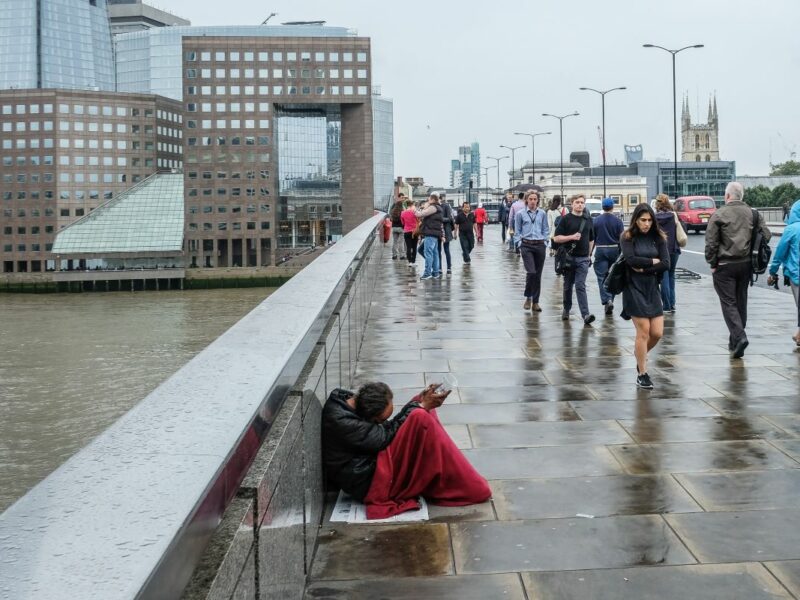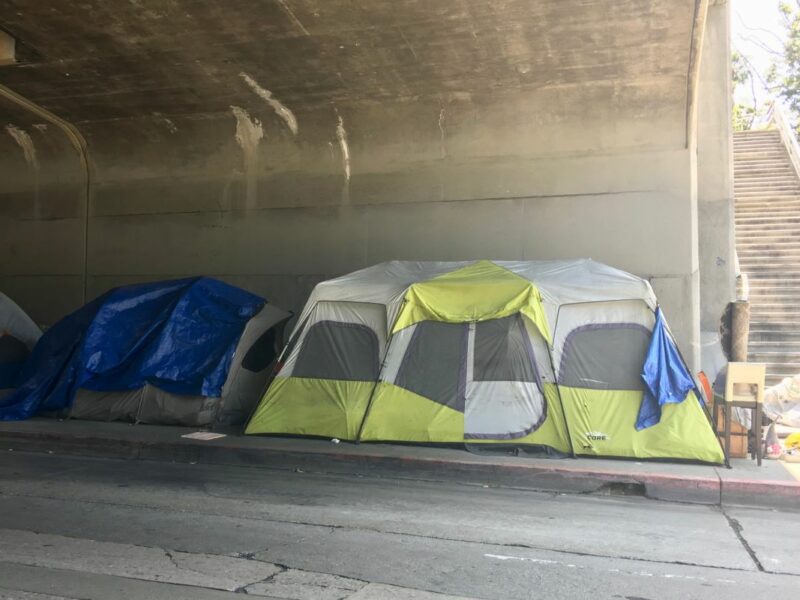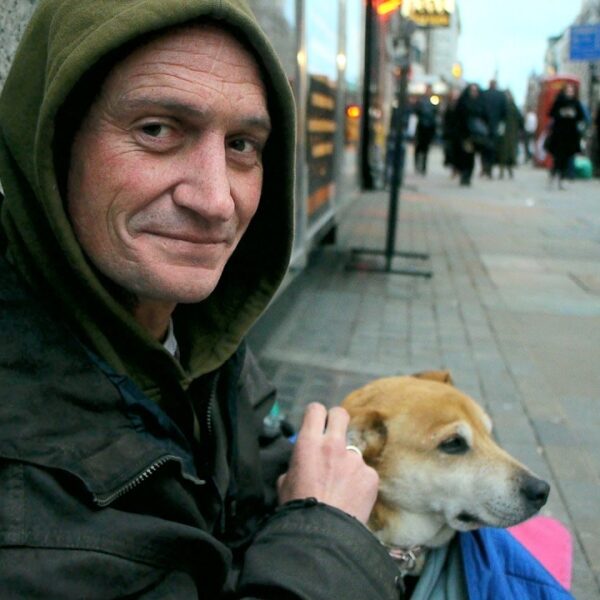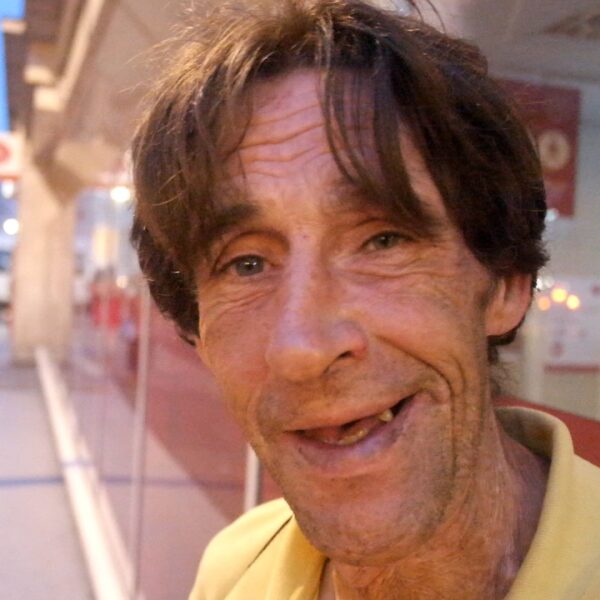Connectivity has always been an issue with homeless people living on the streets and in hostels. Without access to a phone or computer, many rough sleepers cannot contact others. As a result, they cannot gain the help required to improve their lives. This includes contacting support services, claiming universal credit, and looking for work.
Coronavirus has made matters worse. Walk-in services and job centers have closed. Most services are now only accessible online. Rather than visiting in person, homeless people must find another way to access these much-needed services.
The pandemic has made the need for digital connectivity even more critical, especially when seeking services necessary for survival. At the same time, it has exacerbated the growing digital exclusion that many vulnerable groups face.
But in the United Kingdom, changes are being made to improve connectivity levels among rough sleepers.
Homeless people in Great Britain will receive thousands of free mobile phones. The homeless charity Crisis is handing out 2,500 handsets and data packages across Britain to boost digital connectivity.
Tesco Mobile backs the plan. The mobile virtual network operator, run by supermarket chain Tesco, is donating £700,000 worth of equipment data in the first year. More are expected to follow. After realizing that 40 percent of the organizations requesting donations of mobiles were linked to homelessness, the company decided to act.
“For many people living without a permanent home, digital connection is a necessary lifeline,” Tesco Mobile’s chief executive Tom Denyard said. “An important part of our partnership with Crisis will be in helping to deliver connectivity to those who need it most.”
The Importance of Connectivity
The new scheme will help tackle the high social isolation and loneliness levels that rough sleepers often experience. Crisis also hopes Tesco Mobile’s donation will encourage members of the public to donate second-hand phones.
“[Isolation] is an important and damaging part of homelessness,” said Jon Sparkes, chief executive of Crisis. “We can get people a home and a job, but results come from building personal relationships. Connection and the ability to access services, to talk to someone who understands, is a vital part of making the move out of homelessness sustainable.”
Without access to mobile phones, rough sleepers are isolated. They are unable to ring support organizations to connect with. This means homeless people cannot speak with family and friends, making the struggle with homelessness even more difficult as they battle loneliness and isolation.
Most services and organizations that help homeless people require an email address to contact. With a phone handy, rough sleepers can connect online and reach out to the people who can help them.
In the United Kingdom, universal credit is a payment that many homeless people receive to help with their living costs. With universal credit, members must log on daily. With access to a phone, homeless people can stay on track to receive payments to help them.
Plus, without access to the internet, searching for jobs and finding directions to interviews and appointments can be challenging. These are the small tasks that many of us take for granted, but traveling around, especially in cities, can be challenging if you don’t have access to an online map.
A Lifeline During Lockdown
As most of the world went into lockdown due to the spread of coronavirus, access to a phone or the internet became even more crucial for people to stay connected. Yet we know that many homeless people don’t have this type of connectivity, fuelling negative feelings of isolation and anxiety.
Crisis has already provided approximately 1,000 phones for homeless people during the lockdown. This ensured that rough sleepers had access to online support, could connect with friends and family, and could use the internet to find somewhere safe to live.
Crisis said, “We will build on this work and ensure a far greater number of people experiencing homelessness across Great Britain can connect with Crisis and other vital services to help them end their homelessness for good.”
Homelessness and Mental Health
Having access to a mobile phone to connect to society can significantly improve a homeless person’s mental health.
Homelessness is synonymous with isolation and a lack of social support. Once someone is without permanent housing, it’s challenging or even impossible to connect with a social network. Social linkages are crucial for remaining connected with society.
The isolation and loneliness many homeless people experience is the sense or experience of being forgotten by friends and family, and strangers and the rest of society. Usually, this feeling of loneliness is the core driving experience behind much of the addiction cycle that many rough sleepers experience. Often, the problem at the center of homelessness isn’t money, food, jobs, or housing. It is loneliness, which can lead to mental illness and addiction if circumstances don’t improve.
During the pandemic, especially, conversations for rough sleepers can become rare. For many homeless people, social contact can even be adversarial or abusive. Eye contact may be absent. And while homeless people are often avoided, during COVID-19 human touch may become a distant memory for rough sleepers.
It’s not uncommon for homeless people to be passed by hundreds without acknowledgment or eye contact. While many people are rightly concerned about loneliness in the elderly, the same attention isn’t given to isolation in the homeless community.
While the effects of loneliness may start off small, it can develop into deep social isolation, and then into social exclusion. Without access to the internet and mainstream social networks, it becomes more and more challenging to find housing and gain employment.
How Can We Help Reduce Isolation in Homeless People?
Mobile phones offer access to the internet reducing the likelihood of social isolation in homeless people. But there are ways all of us can help make a difference, too. If you see someone living rough on the sleep, don’t ignore them. Make eye contact and smile.
Have a chat with them. You may be surprised at the interesting stories many homeless people have to tell. And what you may learn from them. If you’re not sure where to start, ask a rough sleeper how their day was. Then listen carefully to the answer. Even just a small chat during the day can have a big impact.
The new scheme lends homeless people in the United Kingdom a much-needed lifeline to make connections that would otherwise be significantly challenging during a pandemic. Can we expect any similar plans to arise in the United States?













